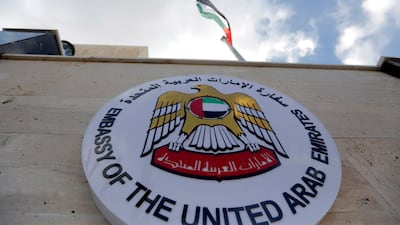Bashar Al Assad’s forces have all but secured military victory after nearly eight years of devastating conflict.
Half a million people have been killed and half the country displaced as Syria’s dictator, backed by the Russian air force and militias led by Tehran, clawed back inch after inch of territory from disorganized rebel forces.
Only Idlib province remains under rebel control, shared with Al Qaida-affiliated extremists, while other parts of the north and east are held either by Turkish proxies or Kurdish militias backed by the US.
US President Donald Trump’s announcement last week that the US would withdraw troops from Syria soon, having reduced the territorial presence of ISIS to a sliver of land near the town of Hajin, was an unexpected boost to Iran whose proxies are resurgent in Syria.
The US had sought to remain in Syria in the short-term to ensure the lasting defeat of ISIS, the containment of Iranian influence and having some influence over final peace negotiations in Syria.
The abandonment of the Kurdish militias – historic enemies of Turkey who led the defeat of ISIS in Raqqa – will probably accelerate their rapprochement with the regime in Damascus and open larger tracts of eastern Syria to Iranian influence.
__________
Read More:
UAE reopens embassy in Damascus after six years
Russia says Syria's Assad is popular in spite of overseeing 7 year war
Russia: The US should transfer its territory in Syria to Assad
Assad claims Arab states and West beginning Damascus re-engagement
__________
Meanwhile, news emerged that the UAE has reopened its embassy in Damascus. The decision was the culmination of months of quiet rumours in back-channel discussions that would give the Gulf states a seat at the table once again in Syria.
Reopening the embassy is not simply a back channel, but a direct line of access to Gulf power centres and is a monumental shift in policy in its restoration of normal relations.
The UAE played a crucial mediation role at the start of the uprising in Syria, sending Foreign Minister Sheikh Abdullah bin Zayed to meet Mr Al Assad and urge a peaceful resolution to the crisis.
Those entreaties would fall on deaf ears and some Gulf states would eventually sever official diplomatic links with the regime and offer varying degrees of backing to the opposition.
As the uprising faltered, the Gulf’s support dwindled.
But there were already indications of a rapprochement in autumn when a video circulated of a warm meeting on the sidelines of the UN General Assembly between Syrian foreign minister Walid Al Muallem and Bahrain’s Khalid Al Khalifa.
Manama’s top diplomat would later say in an interview that Arab countries could not stand by while Syria’s fate was determined by regional and international powers.
Damascus had been evicted from the Arab League amid the failure of the organisation’s joint envoys with the UN to achieve any progress in peace talks, despite the work of veteran diplomats such as Kofi Annan and Lakhdar Brahimi.
But in recent weeks rumours have resurfaced that the body was ready to readmit Syria, with a recent visit by Sudanese President Omar Al Bashir, the first by an Arab leader to Damascus in years, bolstering the claims.
Syrian peace talks remain stalled. The UN-sponsored Geneva process, which is based on the need for a credible political transition, are dying despite being supported by a Security Council resolution.
And the efforts of the UN envoy to put together a constitutional committee to draft a post-war charter for Syria have come to nought.
They have been supplanted by the Astana process, led by Russia, Turkey and Iran, but that has also failed to stop the violence and instead formed a political cover that allowed the regime to reclaim parts of the country in relatively quick succession.
The three powers behind Astana retain much of the influence by virtue of their presence in the country. But between them, they lack the resources to rebuild war-torn Syria, a project that may cost up to $400 billion.
The EU has tied reconstruction aid to a credible political process and reining in the wartime militias.
Yet some western powers are quietly reopening diplomatic missions in Damascus, spurred on by fears of a long war driving more refugees to the continent and hopes that some of the refugees in Europe will go home.
The Gulf states may be willing to pledge reconstruction aid in the future but it is unclear if it will be tied to progress on political reforms in Damascus or a broader regional realignment.
Efforts in the past to wean Mr Al Assad away from Tehran’s orbit through diplomatic contact failed, although Russia’s presence and its struggle for influence with Iran adds another factor to the mix.
But such initiatives have had some success in other parts of the region. Riyadh’s allocation of $1.5bn of reconstruction aid for Iraq this year signalled improved relations and greater influence for the Saudis in Baghdad, after years of Iranian dominance.
Either way, the Gulf states are signalling that they want a greater say in Syria’s future.







